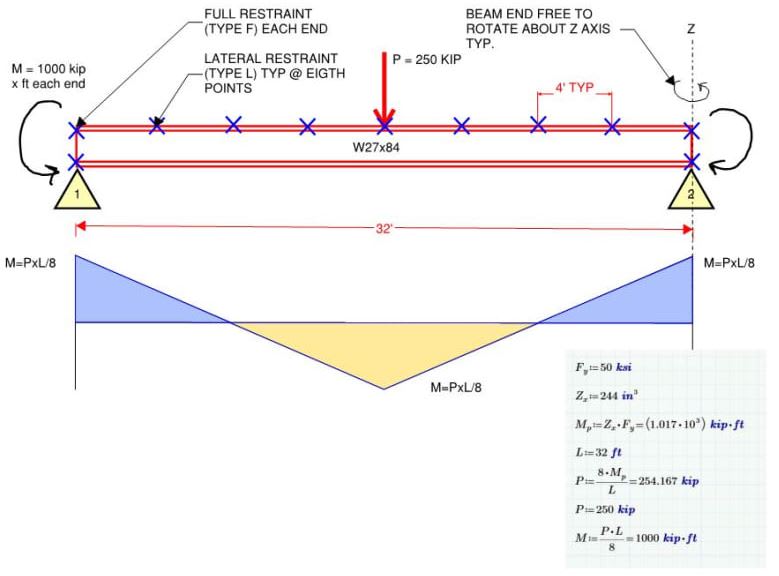This is something of a desperate call to arms and is in relation to this thread: Rafter Without Fly Brace?.
As a result of that thread, it's come to light that LTB design procedures may not be quite as straight forward as they seem. We've been doing a lot of computational buckling analyses but we're running out of steam with that effort without having some physical test results to compare our work to.
What I seek is for someone to point me to any source of lateral torsional buckling test results for cases involving:
1) Moment reversal within the span and;
2) Bracing within the span that is lateral only in nature and, thus, provides no/marginal rotational restraint.
The sketch below shows an example although my request is by no means limited to that specific scenario. I'd happily adapt the computational work to suit whatever relevant testing we can dig up. I'm also happy to fork over some cash to get my hands on the information so suggestions need not be limited to freebie internet documents. The situation of interest is so very common in practice that I have to believe that there's something decent out there for testing. It may well just be so far in the past now that it's typewriter research work from 1932 buried in the Lehigh University library or something.

Consider playing chess with me on the Social Chess app at iTunes. Same handle. Fear not, I suck.
As a result of that thread, it's come to light that LTB design procedures may not be quite as straight forward as they seem. We've been doing a lot of computational buckling analyses but we're running out of steam with that effort without having some physical test results to compare our work to.
What I seek is for someone to point me to any source of lateral torsional buckling test results for cases involving:
1) Moment reversal within the span and;
2) Bracing within the span that is lateral only in nature and, thus, provides no/marginal rotational restraint.
The sketch below shows an example although my request is by no means limited to that specific scenario. I'd happily adapt the computational work to suit whatever relevant testing we can dig up. I'm also happy to fork over some cash to get my hands on the information so suggestions need not be limited to freebie internet documents. The situation of interest is so very common in practice that I have to believe that there's something decent out there for testing. It may well just be so far in the past now that it's typewriter research work from 1932 buried in the Lehigh University library or something.

Consider playing chess with me on the Social Chess app at iTunes. Same handle. Fear not, I suck.
